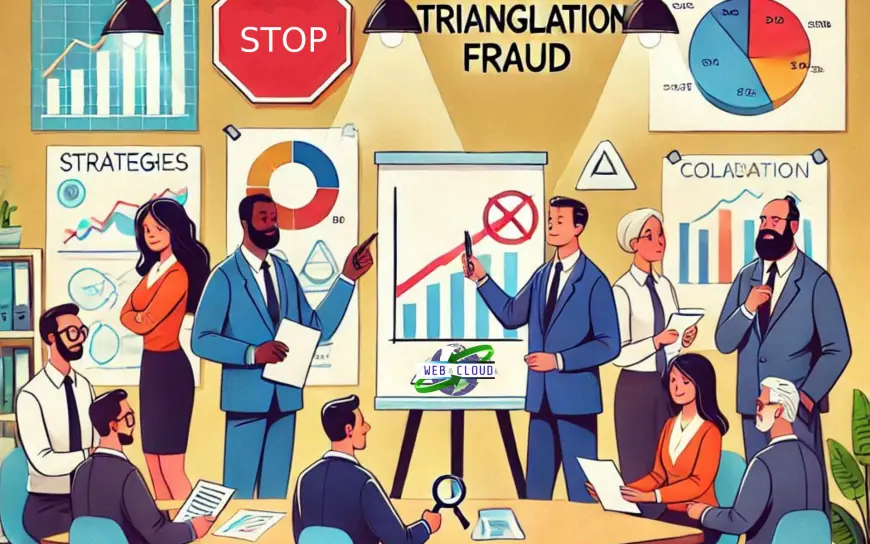The Rising Sophistication of Triangulation Fraud: A 2025 Outlook
Triangulation fraud, a complex and evolving form of e-commerce fraud, has seen a significant rise in recent years. Both consumers and merchants must stay informed and vigilant.

Triangulation fraud, a complex and evolving form of e-commerce fraud, has seen a significant rise in recent years. As fraudsters become more sophisticated, it's crucial for both consumers and merchants to stay informed and vigilant. This article explores the latest trends in triangulation fraud, shares a victim's story from Canada, and provides advice on how to prevent falling victim to this type of fraud.
The Victim's Story
In January 2024, Timothy Barker, a Band Manager at Duncan’s First Nation in northwestern Alberta, Canada, became an unwitting victim of triangulation fraud. Barker, who was responsible for overseeing community health services, education, housing, and social assistance, purchased several "Step2 All Around Playtime Patio with Canopy" sets from a seller on Amazon.ca. Using his payment card, he paid nearly $2,000 for the items.
However, Barker soon found himself accused of orchestrating a complex e-commerce scam. An Ontario woman, whose Walmart account was used to purchase the goods Barker ordered, accused him of hacking her account. Barker was questioned by the Royal Canadian Mounted Police (RCMP) and eventually lost his job due to the false charges. This case highlights the devastating impact triangulation fraud can have on individuals and their livelihoods.
Recent Discussions on Triangulation Fraud
1. Rising Incidents: Triangulation fraud has become a significant threat, with many merchants reporting an increase in such cases. The economic impact of these frauds continues to grow, affecting both small and large businesses.
2. Advanced Tactics: Fraudsters are using more sophisticated methods to carry out triangulation fraud, including leveraging stolen payment credentials and creating fake online storefronts that are difficult to detect.
3. Fraud Management: There's a strong emphasis on developing and implementing advanced fraud management systems that utilize AI and machine learning to detect and prevent triangulation fraud. Merchants are encouraged to adopt these technologies to stay ahead of fraudsters.
4. Global Impact: Triangulation fraud is a global issue, affecting e-commerce platforms in various regions. International cooperation and information sharing are crucial to combat this type of fraud effectively.
5. Customer Education: Educating customers about the risks of triangulation fraud and encouraging them to be vigilant when making online purchases is another important aspect of the discussion.
Advice for Preventing Triangulation Fraud
1. Be Cautious of Deals That Seem Too Good to Be True: If an online deal appears too good to be true, it probably is. Fraudsters often lure victims with attractive prices on high-demand items.
2. Use Secure Payment Methods: Opt for secure payment methods such as credit cards or payment services that offer buyer protection. Avoid using debit cards or wire transfers, as they offer less protection against fraud.
3. Verify Seller Credentials: Before making a purchase, verify the seller's credentials on the marketplace. Check reviews, ratings, and feedback from other buyers.
4. Monitor Your Accounts: Regularly monitor your bank and credit card statements for any unauthorized transactions. Report any suspicious activity immediately.
5. Freeze Your Card When Not in Use: Many banks and credit card providers offer a feature that allows you to temporarily freeze your card. This can prevent unauthorized transactions if your card is lost or stolen, or if you suspect fraudulent activity. Simply log into your bank's app or website to freeze and unfreeze your card as needed.
6. Support Local Platforms: As an advocate of an inclusive digital economy and local tech innovation, Web & Cloud suggests considering using local e-commerce platforms. Supporting local platforms can help facilitate balanced digital economy development in your country. Smaller platforms can often be more responsive and capable of manually checking transactions and spotting fraud more quickly than larger companies with offshore business centers.
7. Educate Yourself and Others: Stay informed about the latest fraud trends and share this information with friends and family. Awareness is the first step in preventing fraud.
Conclusion
As triangulation fraud continues to evolve, it's essential for both consumers and merchants to remain vigilant and proactive in their efforts to prevent it. By staying informed, using secure payment methods, supporting local platforms, and educating others, we can work together to combat this growing threat.





































